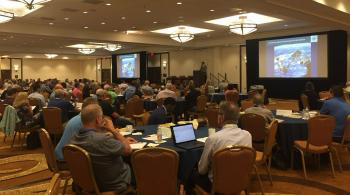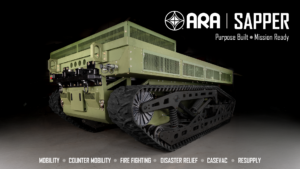
Applied Research Associates Inc.’s (ARA) research, experimentation, and design capabilities can save lives and ensure human aspects of socio-technical systems are reliable, making our world – and our workplaces – safer through advanced cognitive solutions.
Christopher Nemeth, PhD, leads Capital Area Division’s Cognitive Solutions Group and specializes in: human cognitive performance in high-risk work sectors; research and development to create systems to improve efficiency, safety, reliability and resilience; and development and instruction of courses in design, human factors, and system safety.
Dr. Nemeth presented an interactive talk at the 24th annual Human Performance, Root Cause and Trending (HPRCT) conference in San Antonio, TX this year. Two case studies called attention to how different approaches, resilience engineering (RE) and high reliability (HRO), can yield different insights into risk and risk mitigation.
Resilience engineering (RE) methods can be used to improve a socio-technical system’s ability to adapt to unforeseen challenges. RE research in high-risk settings makes organizations sensitive to, and able to manage, potential threats to mission success.
His talk, “Uh-Oh: Learning from Adverse Events Using RE and HRO Methods” described the study he led on behalf of NASA Safety and Engineering Center in 2017 into a near-fatal incident at the International Space Station (ISS). Using RE methods, the research team studied Johnson Space Center’s Mission Control. The project’s results showed how RE methods could enable NASA, an organization with world-class science and engineering aptitude, to improve safety through closer attention to how it anticipates, monitors, responds to and learns from human performance issues.
The second case study, by retired Navy Captain Ralph Soule, explored how high reliability methods could contribute to understanding the factors that led to the USS FITZGERALD’s fatal 2017 collision with the cargo vessel ACX CRYSTAL in the Sea of Japan.
In addition to presenting two case studies of adverse events, Dr. Nemeth invited the 300-plus safety professionals in the audience to pose and discuss their own questions based on their own particular approach to adverse event investigation.
HPRCT sponsors the annual conference, which fosters learning and open sharing on adverse event prevention and response, and operational learning across the spectrum of member organizations for a safer and more reliable world through prevention and organizational learning.
To learn more about ARA’s cognitive solutions capabilities, visit www.ara.com/cognitive-solutions/
Contact
Dr. Christopher Nemeth
847-869-3621
cnemeth@ara.com



